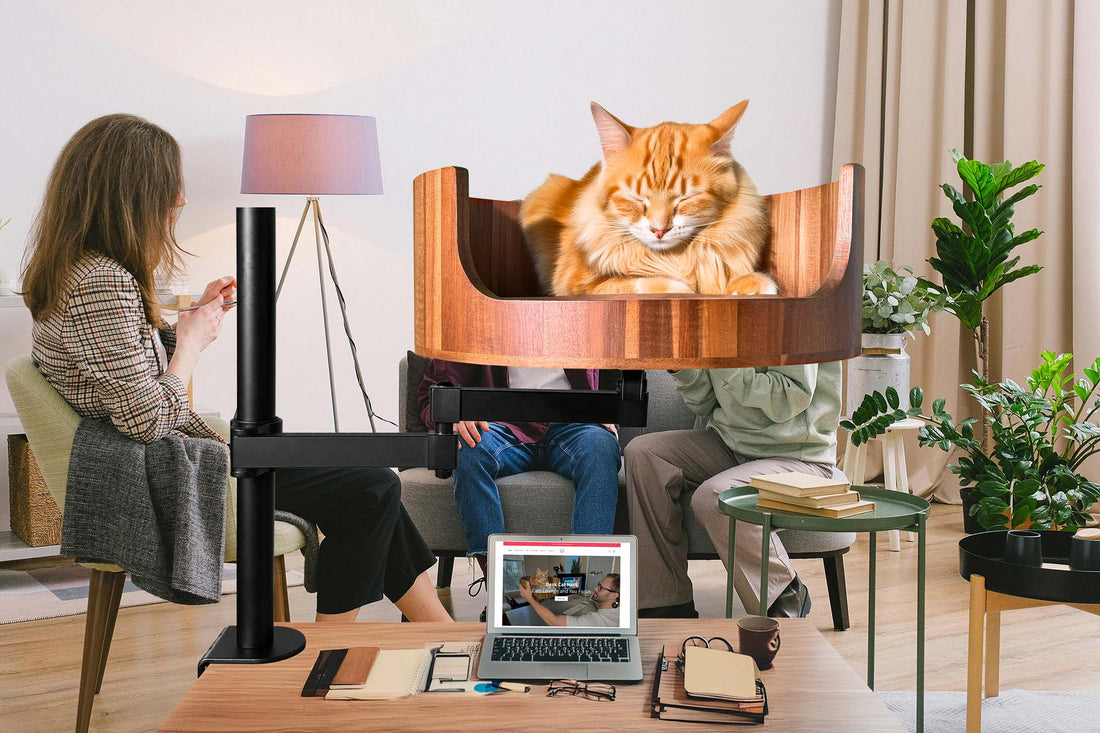
Why Do Cats Nibble on Your Fingers: Understanding Behavior
Share
Have you ever wondered why your cat nibbles on your fingers? It can be a cute and endearing behavior, but understanding the reasons behind it can provide valuable insights into your feline friend's behavior. In this article, we will delve into the fascinating world of cat behavior and explore the reasons why cats nibble on your fingers.
Cats are known for their playful and curious nature, and nibbling on fingers can be a form of affectionate behavior for them. It is their way of showing love and bonding with their human companions. However, there can be other reasons behind this behavior, such as teething, boredom, or even stress. By understanding the underlying motivations for your cat's nibbling, you can better address their needs and provide a more enriching environment for them. Join us as we explore the intricate behavior of cats and uncover the mysteries behind why they choose to nibble on your fingers.
1. Cats nibble on fingers as a way of showing affection and trust towards their owners.
2. This behavior is rooted in their instincts as kittens, when they would nibble on their mother during nursing.
3. Nibbling can also be a form of play or communication for cats.
4. It's important for cat owners to understand and respect their pet's boundaries when it comes to nibbling.
5. Providing appropriate toys and treats can help redirect nibbling behavior in cats.
Reasons Behind Cat Nibbling Behavior
Cats nibble on your fingers for various reasons, including playfulness, affection, exploration, and sometimes even lack of proper stimulation. Playful nibbling is a way for cats to engage in interactive behavior or mimic hunting instincts. Cats may also nibble as a sign of affection, using it as a form of grooming or bonding with their owners. Nibbling can also be a way for cats to explore their environment, as they use their mouths to investigate objects and textures around them.
Health and Medical Concerns
While occasional nibbling may seem harmless, excessive biting or nibbling behavior can be a cause for concern. Dental issues, such as pain or discomfort in the mouth, could prompt a cat to nibble on fingers as a way to alleviate the pain. Stress, anxiety, or other underlying medical conditions could also lead to increased nibbling behavior. It is important to monitor your cat's behavior and consult with a veterinarian if you notice any changes in their nibbling habits.
Training and Behavior Modification
If your cat's nibbling behavior becomes a problem, there are ways to address and modify their behavior through training and positive reinforcement techniques. Providing appropriate toys and outlets for play can redirect their urge to nibble on fingers. Using treats, praise, and rewards can help reinforce desired behaviors and discourage unwanted nibbling. Consistency and patience are key when it comes to training your cat to stop or reduce their nibbling habits.
Frequently Asked Questions
Why do cats nibble on my fingers?
Cats may nibble on your fingers as a way to show affection or to mimic behaviors they would do in the wild, such as grooming or hunting. It could also be a sign of teething in kittens or a way for them to release energy.
Is it normal for my cat to bite my fingers?
While nibbling on fingers can be a normal behavior for cats, it is important to set boundaries and discourage biting that is too rough or aggressive. Teaching your cat appropriate ways to play and rewarding gentle behavior can help address this issue.
How can I prevent my cat from biting my fingers?
Providing your cat with appropriate toys to chew on, such as interactive puzzle feeders or dental toys, can help redirect their biting behavior. You can also use positive reinforcement techniques, such as treats or praise, to reward gentle play and discourage rough biting.
Should I be concerned if my cat bites my fingers too hard?
If your cat bites your fingers too hard and causes pain or injury, it is important to address this behavior immediately. Consult with a veterinarian or animal behaviorist to determine the underlying cause of the biting and to develop a plan to correct it.
In conclusion, providing your cat with a Desk Cat Bed can help address the behavior of nibbling on your fingers. This cozy and comfortable bed offers a safe and designated space for your cat to rest and play, reducing the likelihood of them feeling the need to nibble on your hands for attention or stimulation. By investing in a Desk Cat Bed, you are not only meeting your cat's need for comfort and security but also promoting positive behavior and strengthening your bond with your feline companion. Make the choice to prioritize your cat's well-being and happiness with a Desk Cat Bed today.



















































